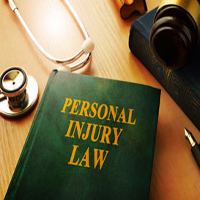Learn how to get maximum compensation if you suffer a back injury because of someone else’s negligence
A back injury is any issue affecting the bones, nerves, muscles or other tissues from the neck to the bottom of the spine. Injuries can also affect adjacent areas, particularly attached muscles and nerves. Back injuries often arise from car accidents, falls, sports injuries and work-related incidents. Such injuries can lead to symptoms like pain, stiffness, numbness and the loss of range of motion.
Civil negligence often plays a role in many of these types of incidents. Unsurprisingly, many such accidents lead to insurance claims and lawsuits.
Types of injuries
Musculoskeletal injuries are relatively common. These may include:
- Sprains
- Strains
- Broken bones
- Torn muscles, ligaments or tendons
Herniated discs in the spine are common injuries, too. Some people may suffer pinched, obstructed, or even severed nerves. In extreme cases, spinal cord damage occurs, leading to life-altering consequences.
If you or a loved one have experienced a spinal cord injury, it’s crucial to understand your legal rights and options in South Carolina. Our comprehensive guide provides essential information on spinal cord injury lawsuits, seeking compensation, and finding the right legal support.
Safety precautions to avoid back injuries
Ideally, people are moving around environments with sufficient precautions. For example, workplaces should have back-support devices to prevent strains.
Similarly, all public buildings should mark zones where injury risks are higher due to possible accidents, like boxes falling from high shelves. Also, businesses should post temporary warning signs where hazards appear, such as wet floor signs to indicate spilled fluids on floors.
The importance of seeking medical treatment after a back injury
Back injuries still happen even in seemingly safe environments. Seeking medical treatment is important for 2 reasons:
- Prevents injuries from getting worse. You should request an exam as early as possible to catch any potential issues. Even if you feel good now, something like a bone chip could cause problems weeks down the road.
- Provides legal documentation. Seeking medical attention right away creates a paper trail for legal purposes. Even if you think there’s zero chance that you’re going to file a claim, seek care out of an abundance of caution. Otherwise, there’s a risk that an insurer might dismiss the claim because you can’t connect it to your accident.
How a personal injury attorney can help
Talking with a personal injury attorney within days of an accident is wise. A lawyer can assess your case and determine if you might have legal grounds for seeking compensation through an insurance claim or a lawsuit. They can assist you in gathering evidence, including collecting medical reports into a coherent demand package. A lawyer can also locate witnesses and record their testimony.
Sure you can, although some cases can be complex and working with an experienced injury attorney would be an advantage for you.
The biggest factor to consider: If the price of losing your case is more costly than hiring a lawyer, then hire one.
Assessing the value of a possible claim
Back injury victims will often wonder what the potential value of a claim is. An attorney will compare your case to ones like it that they’ve handled in your area.
Insurance companies and injury lawyers factor in many issues, including:
- Local income levels
- The severity of the injuries
- Whether the injuries will cause long-term trouble
- How much a victim has lost due to medical bills, missed work and reduced quality of life
For example, nerve or spinal damage could have long-lasting effects, and that likely means greater value for a settlement or judgment.
Did you know?
There are 2 types of damages in personal injury cases:
- Compensatory damages are meant to compensate a victim for losses related to their injuries.
- Punitive damages are only awarded in cases where an injury was caused by extreme recklessness or malice. This financial compensation is designed to deter others from exhibiting similar behavior.
Gathering evidence
Attorneys typically focus on a handful of evidence sources. The primary evidence comes from medical reports. If necessary, a lawyer will consult with medical experts who can provide insights regarding specific aspects of your injuries.
Lawyers will also look for evidence sources directly tied to an incident. They might be able to use the following:
- Eyewitness testimony. If there were eyewitnesses, an attorney will talk with them.
- Official accident reports. Lawyers love on-the-scene reports from cops, firefighters and EMTs.
- Video surveillance. Video evidence from surveillance systems is excellent evidence for personal injury cases. An attorney can help you obtain it.
- Work logs. Maintenance and shift logs can help fill out the story as well.
Negotiating with an insurance company or the defendant
Insurance companies usually have claims adjusters that assess the validity of cases. If the claim appears to be valid, the claims adjuster will recommend a settlement offer based on data regarding similar cases the company has handled in the past.
Frequently, the 2 sides won’t agree on the settlement amount, and this can lead to negotiations.
All about insurance
Learn about insurance and familiarize yourself with common insurance terms. Understand your policy and protect yourself and your assets.
Legal representation in court, if necessary
One of the big reasons to hire a personal injury lawyer is to maintain the threat of taking the case to court. While the vast majority of cases don’t go to trial, insurers make settlement judgments based on the total money at risk.
Going to court and losing is costly, so insurers want to avoid this scenario unless they strongly believe the claim is fraudulent.
Potential factors affecting settlement and judgment amounts
Legal liability and the extent of the injuries are the biggest factors in compensation totals.
In South Carolina, a victim can have partial liability, referred to as comparative fault. For example, if you were running down a grocery store aisle before a slip-and-fall accident, you might be partially liable for the accident, even if there was water on the floor.
In this case, if a judge decided you were 15% to blame for the accident, your final settlement amount would be decreased by 15%. If you had $100,000 in medical bills, for example, 15% victim liability would mean you’d get $85,000 in compensation.
Catastrophic injuries can also be a major factor in determining award amounts. A catastrophic injury is one that’s permanently life-altering, such as a severed nerve or damaged spinal cord. Judges and juries often award plaintiffs more money for these types of injuries because of their life-long impact.
In the news:
In 2019, a woman in New York named Patricia Jones underwent surgery to repair pre-existing back pain caused by herniated discs. During the surgery, a bone fragment lodged in her spine and left her quadriplegic. She successfully sued and obtained a $56 million judgment.
Contact a South Carolina personal injury attorney
Legal representation makes a major difference in assembling a claim and negotiating with insurers. The presence of a personal injury attorney signals that you mean business and will sue, if necessary.
All personal injury cases are different, so it’s vital that you contact an experienced personal injury attorney to ensure you’re able to obtain maximum compensation for your case.
If you’ve suffered an injury because of someone else’s negligence, the experienced personal injury attorneys at Chappell, Chappell and Newman are here to help. We’ve dedicated our practice to helping injured clients across the state of South Carolina get the justice and compensation they deserve.
Contact us today for your free consultation so we can develop an individualized plan for you.


